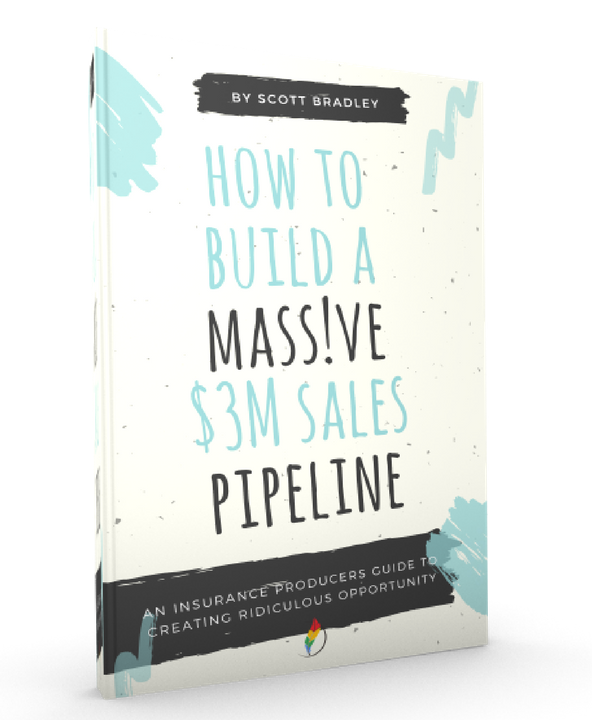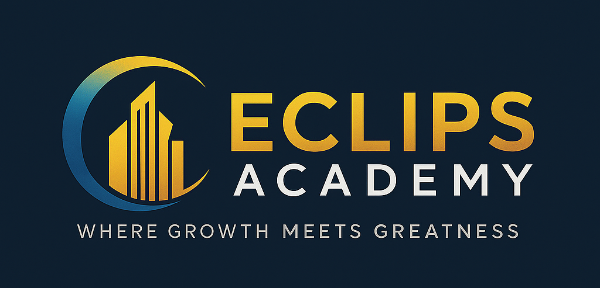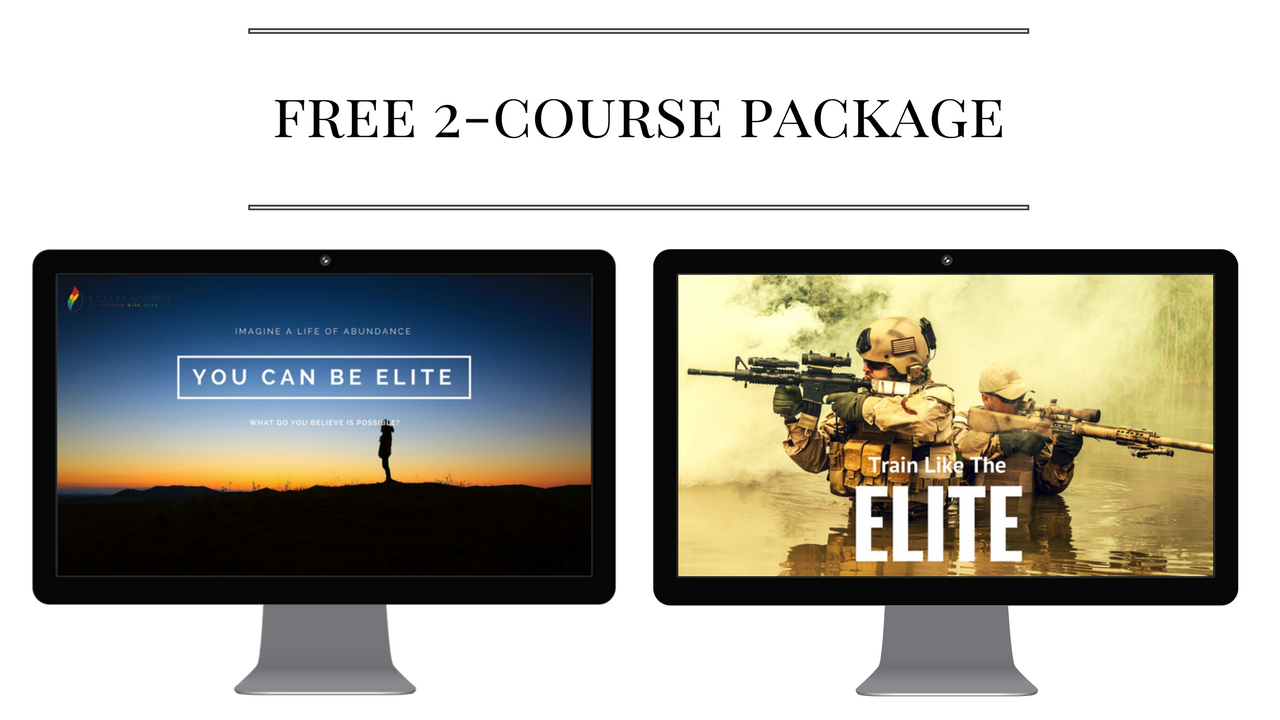How I Wrote $937,500 in New Business in 18 Months - Part I
Apr 25, 2017
Part I
First let me just say, this post is not meant to be boastful. In fact, I have another post I'm working on that talks about some of the stupid mistakes I've made as a producer. I'd write about all of them except I can't remember them them all, there are so many. Right now, I will tell you that some of them were really, really bad. 😳 And every journey is not without struggle.
But I believe you should make mistakes as a producer. Especially when it comes to trying out different prospecting methods. If you're not, then you're probably not trying anything different or challenging enough. And that, in and of itself, is probably the biggest mistake you can make.
But for the moment I'll save myself the embarrassment, and instead share how I did write $937,500 in new business in just 18 months.
As a point of clarity, when I refer to numbers, I only speak in terms of revenue, not premium. IMHO, the industry talks way too much about premium as a way of artificially inflating their success. 🙄
My Personal Restart
If you'd like to know more about my "personal restart," I talk about it in detail in our free, introductory two-course package, You Can Be Elite and Train Like The Elite.
In short, after nearly a decade in various sales and sales leadership positions, I left behind a $1.4M revenue book of business to test my own material, and what I had learned from some of the world's best producers, from scratch. I'm a big believer that the best teachers teach from experience, not theory.
If you're a producer looking for ways to increase your new business results, I believe this will help to shortcut your learning curve. While this is not a shortcut to success, it is a cliff notes version of years of wisdom gathered from the best producers in the world.
Knowledge Wisdom Is Power
Furthermore, this is not all I did. There are a lot of little details that make really big impacts in very specific, critical areas. In this business, knowledge is not power, wisdom is. Wisdom being the application of knowledge.
Having just the knowledge without an understanding of how to apply it only qualifies you to be a great underwriter, not a great producer.
Our two advanced level courses Roll The Hard Six and Elite Tactics are designed to teach the details along with the wisdom on how to apply your expertise to increase sales and get new clients.
What gets overlooked far too often is that the world's most elite producers have a superior technical knowledge AND an ability to communicate it to their prospects and clients with clarity and impact.
So here are the ten, high-level actions I took that I believe were the most critical to my exponential results. (I'll share five of them in two separate posts - Part I & II).
- Changed My Mindset
The greatest temptation of all producers is to settle for what seems possible. This is actually a scarcity mindset. Most of the time, mediocrity isn't something we willingly choose, but a subtle process of settling, slowly sabotaging our perspective.
We begin to think things like "There's not enough good opportunities;" "That account is too large for me;" "I could never write that much."
To counter this destructive mindset, I practiced two specific daily disciplines: employing an abundance mindset and the concept of detachment.
Abundance
The concept of an abundance vs. scarcity mindset has gained significant notoriety in recent years. But I found it to be a critical first step to experiencing exponential results. I noticed real tangible changes in how I thought.
Thinking BIG instead of small challenged me to think outside the self-imposed limitations in my mind and create and chase after bold, audacious goals.
Believing in plenty instead of lack, helped me realize that there are a whole lot of people in this world. This creates an abundance of resources, relationships, opportunities, and wealth. Not a limited amount. Tony Robbins likes to say "You never get beyond scarcity, you have to start beyond it."
I also noticed I was more happy instead of resentful, more willing to embrace change than fear it, more proactive instead of reactive, and found myself with an insatiable thirst for knowledge, learning and growth as opposed to thinking I knew it all.
Detachment
The second critical step in changing my mindset was detaching myself from the results. Alabama football coach Nick Saban teaches this concept to his teams with incredible success.
How many times have you been nervous in a meeting with a prospect? How many times have you been so worried about what your next question is going to be that you don't even listen to the prospect talking? This is your mind attaching itself to the result of the meeting.
I taught myself how to detach - separate, uncouple, remove, free - my goals, value, fears, objectives from my conversations and meetings. After a meeting, I wouldn't assign value to it by ranking it as a "good meeting" or a "bad meeting," it was just a meeting. What did I learn from it? How can I help the prospect? What are the next steps? I was able to let go of future results and past experiences, and just be present in the moment.
This was aided and only possible by employing an abundance mindset.
2. Created A Formal Prospecting Strategy
I don't know why, but I had never had a formal game plan or strategy around prospecting. I had specific practices that I had learned over the years but nothing formal.
So I built one. And it was radically different than the average producer's prospecting process. Having set a bold goal of writing $1M in new business, I knew I had to have a massive pipeline to hit that goal. So piggybacking on the practices of the world's most elite producers, and centering my efforts around two core concepts of minimalism and social selling, I created a ten-step strategy on how I was going to build this massive pipeline.
It worked. Not only did I write $937,500 ($62,500 short of my goal) in new business, after 18 months I had an active pipeline of over $3M in future opportunity.
If you're interested in the strategy I used, you can get the e-book here.

Buy E-Book
3. Built A Niche (Actually 3 of Them)
The quickest way to exponential success is by building a scalable niche. Every producer I've ever spoken with has expressed a desire to have a niche, yet few know how to actually go about doing it.
One of the biggest advantages of a niche is the ability to position yourself as a thought leader with a subject matter expertise in that niche. A niche can be in an industry (construction, healthcare), a line of coverage (Cyber, D&O), a specific problem (large WC loss pick), or any other type of risk characteristic (multinational organization, high growth companies).
Every elite producer I've ever met has built niches of expertise. By building a successful niche, you become a sought after expert (think people coming to you!), elevating yourself above the crowd of competition.
And it's actually a lot easier than most producers think to build a niche. I built three. In Roll The Hard Six, I share how you can build a niche in just six months with a simple six-step process, as well as what goes into the making of a great niche.
Get The Free Course Syllabus
4. Had Really Effective First Meetings
This is an area I knew I had to get better at. I invested in training on how to run an effective strategy meeting, went out with other elite producers to see how they ran first meetings, and deliberately developed the skill of masterful effective questioning (another topic covered in Roll The Hard Six).
I also developed a much more professional approach to running first meetings. I usually tried to schedule first meetings for 60 minutes. I found if they ran longer than that I'd typically lose the prospect's interest, and shorter than that is really hard to get into effective questioning.
To make the most effective use of the 60 minutes, I held myself accountable by:
- Preparing an agenda beforehand. It was really simple and included 10 minutes for introductions, 40 minutes for effective questioning and listening, and 10 minutes at the end for me to share what I've heard and to discuss some possible takeaways for follow up (notice no time for selling).
- Always having a purpose for the meeting. This was usually discussed when I set the appointment, but I always had a specific purpose for meeting with the prospect, and it wasn't to "talk about their insurance program" or "see if I can quote their business." Building a niche of expertise makes this easier because you can become an expert in the top five or six topics affecting your prospect's business.
- Preparing 5 to 10 effective questions in advance of the meeting. Usually I'd never get to all the questions, but I always had a list and that list was created by researching my prospect's business and industry. I'd start out with something like "Tell me about..." and then depending on their answer, go two and three layers deeper on each subject.
- Carrying with me a physical trigger to remind me to stay detached. One of the biggest challenges in the meeting is to stay present and not let your mind wander into the future thinking about how much revenue the account is, how good of an opportunity it is, or get stuck in the past about a stupid comment, dumb question, awkward silence or exchange. So I carried with me a physical object in my pocket as a swing thought, reminding me to stay detached and in the moment.
Running a successful first meeting requires practice and deliberate training, but in our business, it's critical to success.
5. Conquered Fear By Calling On Large Accounts
One of my favorite chapters in Ben Horowitz's book The Hard Thing About Hard Things, is title "Lead Bullets." Sometimes in business there comes a time when you need to stop looking for the "silver bullet" and just do the hard thing.
For me, this was overcoming fear. I had a hard time overcoming the unknown of "large accounts." I feared I wasn't qualified to write them, that I wouldn't know the answers to their questions, that these risk manager's or CFO's were so super smart I wouldn't even be able to hold a conversation with them.
But I also knew that if I wanted to build an exponential book and hit my bold $1M goal, I needed to write large accounts.
So I called on them.
Instead of looking for a silver bullet, I just did what I did with every other account. I'll never forget the time I had a conversation with the Risk Manager at Dole Foods, one of the largest providers of fresh food products...in. the. world. I think my heart was beating fast the whole time and I was sweating when I got off the phone.
But...we actually had a great 45 minute conversation. I was prepared for the conversation with the purpose for my call but I realized it wasn't so scary after all.
The funny thing is we covered a lot of topics during our conversation that just happened to come up in several other prospect meetings around the same time. So I found myself referring to my conversation with Dole and how they were thinking about the challenges. 😂
What it did accomplish was stretching my mind on what's possible, overcoming my fear of feeling under-qualified for large accounts, and making every other large account seem smaller.
Just three months later, I closed the largest deal I had ever written for $250,000 in revenue.
Mission accomplished.
Recap
So if you're taking notes, to recap the first five:
- Change your mindset.
- Create a formal prospecting strategy.
- Build a niche(s) of expertise.
- Get really good at running first meetings.
- Conquer fear by facing it.
In Part II, I'll cover the remaining five actions that I believe were critical to generating exponential results.
Lorem ipsum dolor sit amet, consectetur adipiscing elit. Cras sed sapien quam. Sed dapibus est id enim facilisis, at posuere turpis adipiscing. Quisque sit amet dui dui.
Stay connected with news and updates!
Join our mailing list to receive the latest news and updates from our team.
Don't worry, your information will not be shared.
We hate SPAM. We will never sell your information, for any reason.



